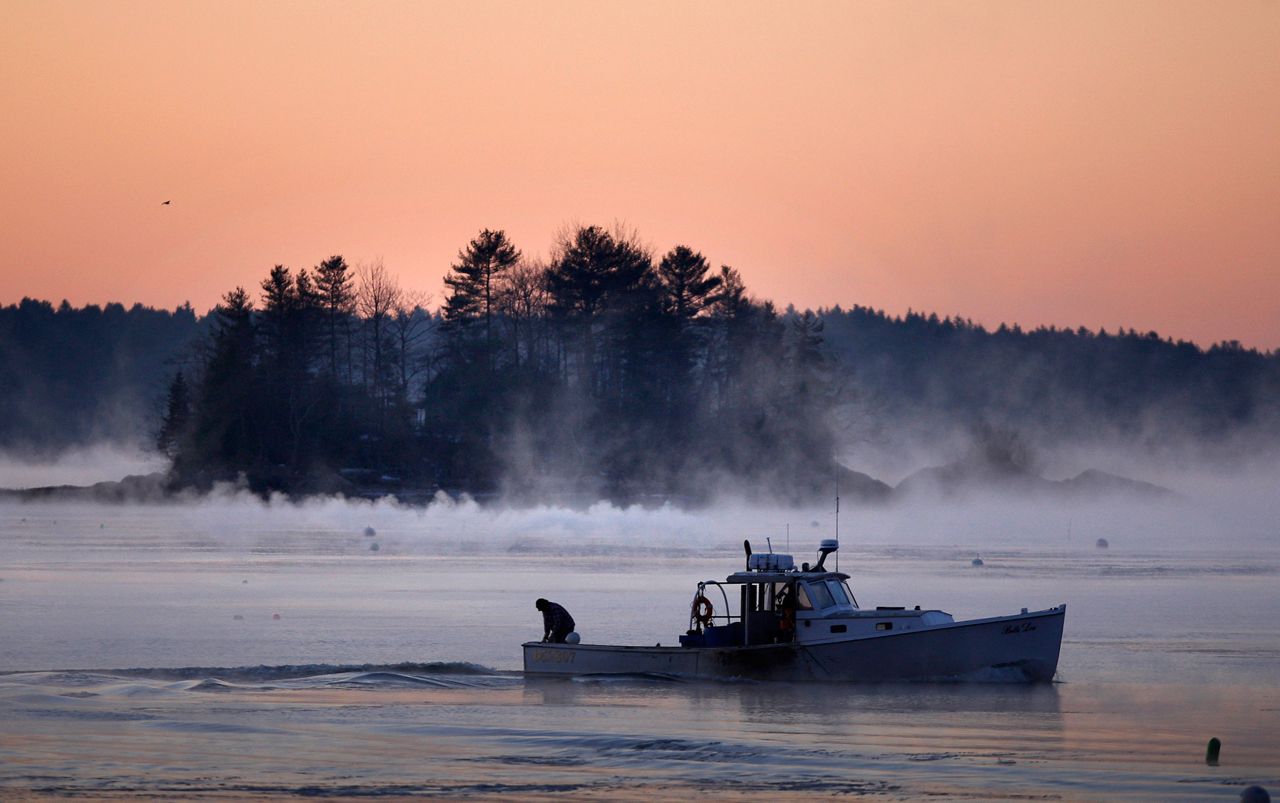Lobster fishing union drops lawsuit about new whale closure
By PATRICK WHITTLE Associated Press
PORTLAND, Maine (AP) — A lobster fishing union in Maine has decided to drop part of its lawsuit against the federal government over new restrictions meant to protect rare whales.
The Maine Lobstering Union sued the National Oceanic and Atmospheric Administration after the government instated a seasonal ban on lobster fishing gear in a nearly 1,000-square-mile (2,600-square-kilometer) area off New England to try to protect North Atlantic right whales. The whales are vulnerable to entanglement in the gear.
The lobster fishing union is focusing instead on other litigation about fishing rules, including forthcoming new rules intended to protect whales, said Alfred Frawley IV, one of the lawyers for the union, on Friday.
New fishing rules meant to protect the whales are the subject of other lawsuits that are still under consideration by federal court. More new rules meant to protect the vanishing whales are also expected in the coming months.
"We would challenge any similar closure and any expanded closure," Frawley said. "A lot of people make all of their money for the season in that area."
A federal court ruling last month came down in favor of stronger protections for the animals. U.S. District Judge James Boasberg ruled in July that the federal government hasn't done enough to protect the whales, and new rules are needed to protect them. The lobstering union and other fishing groups have pledged to follow that process closely with an eye to protecting the industry.
The court is expected to determine a remedy in that case some time in the fall. Officials with NOAA are meeting and discussing next steps, said Kate Swails, a NOAA spokesperson.
The right whales number less than 340 and are vulnerable to collisions with large ships as well as entanglement in fishing gear. Both threats are sometimes fatal for the whales, which have suffered high mortality and poor reproduction in recent years.
The whales were once abundant off the East Coast, but they were decimated during the commercial whaling era and have been slow to recover.









